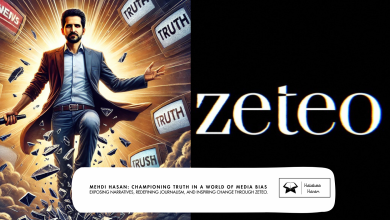Our Failure to Protect the Vulnerable. My personal account of pain, hurt, and anger towards Communities, Governments, Religion, and Law Enforcement.
As a member of society, it is heartbreaking to witness the increase of radicalization and extremism, as well as the loss of innocent lives as a result. The consequences of these atrocities on young people, who are supposed to be tomorrow’s leaders, are even more frightening.
I am concerned, I have witnessed directly how communities, governments, religions, and law enforcement have failed to protect these defenceless individuals appropriately.
Anybody who is susceptible to being taken advantage of, mistreated, or hurt is considered to be “vulnerable.” Young people are frequently the ones who become radicalised, frequently at the hands of extremist organisations that rely on their weaknesses and fears. These organisations entice these young people into their web of hatred and violence through cunning strategies like propaganda and social media.
Instead of speaking out against such activities, certain communities and religious organisations have remained silent in the face of an alarming rise in extremism and radicalization. Instead, they have opted to ignore the problem, allowing it to fester.
The failure of governments and law enforcement organisations to appropriately address the problem of radicalization is partly their fault. Although attempts have been made to address the issue, they have not been comprehensive enough to address the root causes of radicalization. Law enforcement has frequently employed harsh tactics, such as mass arrests and deportations, which have only served to further alienate weak individuals and drive them towards extremism.
Shamima Begum’s tale, of a British lady who fled the UK to join the ISIS terrorist organisation in Syria, serves as a reminder of how poor governments and law enforcement are at protecting the vulnerable.
Begum, who was just 15 years old when she left the UK, is reported to have been brainwashed and fostered by ISIS recruiters. Despite being a victim of radicalization, she was stripped of her British citizenship and left alone in Syria with no way to return home.
While Begum’s situation has created debate and controversy, it also highlights critical concerns about how we can protect vulnerable people from extremism. Rather than punishing these individuals, we must address the root causes of radicalization and provide them with the assistance and guidance they need to reject extremist ideologies.
One way is to educate and raise awareness among young people about the dangers of extremism and radicalization. In addition, we must guarantee that people who are vulnerable have access to social support, mental health services, and other resources to help them cope with their vulnerabilities and avoid extremist organisations.
Begum’s experience may act as a significant deterrent to other young people considering joining extremist groups, and if she returns to the UK, she may be able to persuade even help other organisation who are already tackling the spread of radicalization. It may also act as a wake-up call to society, governments, religious organisations, and law enforcement authorities to be more vigilant in defending the defenceless.
It is crucial that we show sympathy and compassion for Shamima Begum’s situation as a Christian nation. We should use her experiences to address the problem of radicalization and extremism rather than simply criticising her actions. We should be prepared to forgive her if she shows sincere remorse for what she did and commits herself to preventing future radicalization since forgiveness is a fundamental Christian principle. The Bible states, “But I say to you, love your enemies and pray for those who persecute you” (Matthew 5:44). By doing this, we can all work towards a society that is safer and more peaceful. Additionally, as a Christian nation, we should come together as a community to provide support, advice, and resources to those who are most vulnerable to being influenced by extremist organisations.





